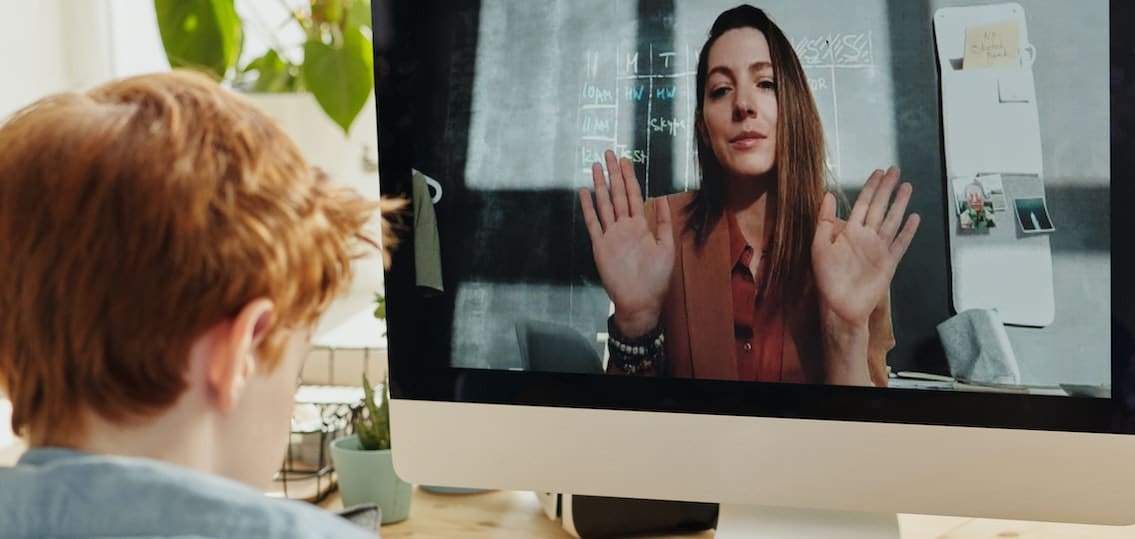Online learning is a strange new world. Teachers and parents are scrambling to make sure middle-schoolers are mastering the basics, from math to literature, so they can stay on grade level. What we might forget, however, is that traditional subjects were only one part of your student’s day. The parts they likely looked forward to the most were “specials”—like music, gym, art, band, and orchestra. (And lunch, of course.)
Middle school students in particular need those opportunities throughout the day to blow off steam and to socialize with peers in a semi-structured way. But how do you organize a soccer game, team-build a model skyscraper, or hold band rehearsal from home?
It’s time to get creative, says Lisa Goldman, orchestra director of the Beachwood Schools system in Beachwood, Ohio. “A lot of households are finding ways to create a joyous and productive environment and keep lines of communication open through arts experiences in the home,” she says.
To round out your child’s learning, we asked educational experts for their suggestions on how to incorporate those all-important specials into your student’s new daily routine.
Use Artistic License
Luckily, there is a wealth of online arts offerings for kids, says Goldman. She recommends checking out your local theatre or fine arts centers to see what they can offer. “Many are providing online classes in topics like dance, drawing, sketching, and painting,” she explains.
Broadway shows are also being regularly broadcast online, the Metropolitan Opera is streaming performances almost nightly, and many major museums are conducting virtual tours, she adds. Try watching these together with your child, discussing what you most enjoy about what you see and hear.
If your child plays an instrument, have them practice it outdoors for a new experience. You can also encourage them to hold a living room concert for the family, or a virtual concert for friends and relatives to enjoy via Zoom. Have them decide which pieces they will play and have them print or email their own invitations. And if you happen to play an instrument as well, learn a new piece together. “Music is not just for school—it’s for family, and for others’ enjoyment,” says Goldman. “Everybody benefits regardless of their ability.”
Let’s Get Physical
The good news is that many middle-schoolers are self-motivated to pursue phys ed. “Kids who do sports are still doing drills at home,” says Phyllis Fagell, LCPC, a Washington, D.C.-based school counselor and author of Middle School Matters. “It’s a bit more challenging for the kids who aren’t necessarily drawn to physical activity.”
 Your aim, Fagell says, is to help your child get fresh air, enjoy some physical activity to release endorphins (feel-good chemicals produced during exercise), and stay in a good place emotionally. So take it outside, if you can—go on walks or bike rides together, or find a place to play Frisbee. Take the lead at first. “Kids are so structured these days that many are unaccustomed to going outside and exercising on their own,” Fagell notes.
Your aim, Fagell says, is to help your child get fresh air, enjoy some physical activity to release endorphins (feel-good chemicals produced during exercise), and stay in a good place emotionally. So take it outside, if you can—go on walks or bike rides together, or find a place to play Frisbee. Take the lead at first. “Kids are so structured these days that many are unaccustomed to going outside and exercising on their own,” Fagell notes.
Try setting a goal together, such as preparing for a 5K run. That taps into kids’ desire for a little competition and introduces an element of fun. Bonus: You’ll both get in better shape.
Engineer Some Fun
While group robotics or maker projects, which involve building something as a team, can’t happen right now, the background work and learning still can be done. Bob Davis, who teaches technology at Beachwood Middle Schools, is having students maintain a spreadsheet related to a mini car they were building before the pandemic.
“They have a choice of different wheel sizes and axle sizes,” Davis explains. “With the spreadsheet, we work with different math concepts, including circumference and radius. We use the spreadsheet to determine how the different combinations of wheel and axle sizes would move the car.”
Encourage your child to find building projects on YouTube they’d like to try. “And if they’re asking for a thousand paper clips because they want to make something, get them if you can afford to,” Davis recommends. “The more basis your kid has of how things are put together, the more they can understand the design process.” Still have Legos lying around? Try breaking those out for some freestyle building fun.

Ultimately, Goldman says, some good may come out of this crisis. “People are learning new skills that they’re going to use later,” she explains. “They’re creating and enjoying—there are a lot of positives.”
The post School Fatigue? Give Extra Attention to Special Subjects appeared first on Your Teen Magazine.
